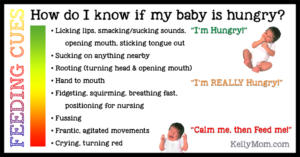 How do I get my baby to burp?
How do I get my baby to burp?
Welcome to parenting, the best and most exhausting job ever. The first few weeks are filled with sleepless nights, feeding, changing diapers, crying, feeding, changing diapers, crying, feeding………..oh and don’t forget about burping in between and after each feed.
A common statement I hear a lot working with families is, “Colleen, I can’t get my baby to burp, what can I do?” My response is simple, some babies do not always need to burp and some burp automatically without having to burp them. Every baby is different but it is always best to try it and try a few different positions. It is very common for babies to swallow air when they begin to feed and even more so if they are crying before or during a feed.
Why do I need to burp my baby?
Burping your baby allows them to get rid of the tiny gas bubbles that might make them fussy or squirmy. Gas bubbles are typically caused by swallowing too much air, mom’s diet or very rarely an allergic reaction. For breastfeeding moms, finding the culprit that is causing the fussiness can be hard so do not just jump to that conclusion first and start eliminating foods. Try changing their position or lie them down, bicycle their legs and then try again. Sometimes just a change in position will release the gas bubble(s). If you have tried different ways to burp and are still not having any luck, talk to a lactation consultant and/or the pediatrician.
According to Google a burp is defined as “a noise made by air released from the stomach through the mouth; a belch.” The American Academy of Pediatrics (AAP) “recommends burping your baby regularly, even if your baby doesn’t show discomfort or release any gas when you burp her. For breastfeeding moms, try burping before switching breasts. For bottle-feeding moms, burp between every 2 to 3 ounces (60-90ml) for newborns up to about 6 months old.”
The most common position to burp a baby is over the shoulder. Put baby’s tummy on your chest with their head and neck supported and pat or rub their back with your other hand. You can also try sitting them on your lap, support their head and neck by cradling their chin and placing the heel of your hand on their chest for stability and gently pat their back. In the same sitting position, gently move them back to almost flat and then bring them back up past the sitting position so their tummy is squished a little, repeat back and forth. The last position I like to demonstrate is placing them on their tummy on your lap and pat their back or gently sway your legs back and forth. You only have to try for a few minutes!
DID YOU KNOW? Shaking a bottle vigorously to mix up the formula can add more air and therefore give your baby more gas?
Remember to check the design of your bottle and the hole size on the bottle nipples. They come in a variety of sizes from preemie all the way up to older babies. If the flow is too fast, babies can swallow more air as they are gulping, yet if it is too slow, they may get frustrated from sucking too hard. For more information on all things bottles, check out these sites: https://www.babycenter.com/0_how-to-buy-bottles-and-nipples_751.bc
http://www.mymilkybaby.com/when-to-change-nipple-flow-on-bottles/
https://similac.com/baby-feeding/formula/bottles-nipples
As your baby gets older, you may notice that they do not need burped as often. This is because their digestive system is more settled and they are learning to eat without swallowing so much air. This typically happens once your baby starts eating solids.
Before you start eliminating foods, trying over the counter medications, a family recipe or using gripe water, consult with your pediatrician to make sure nothing else is going on first.
TIPS for burping:
Watch your baby for signs of hunger cues (http://kellymom.com/bf/normal/hunger-cues/)
Feed baby before they start to cry
Hold baby at an angle when bottle feeding
Change burping positions and try bicycling their legs
Be PATIENT!

Remember that not all babies burp between every side or after each feed, that is ok! You will have plenty of opportunities to master the skills of burping your little one over time.
Give me a call if you would like additional support, education and more parenting tips. I’d be honored to support your growing family.

 How do I get my baby to burp?
How do I get my baby to burp?